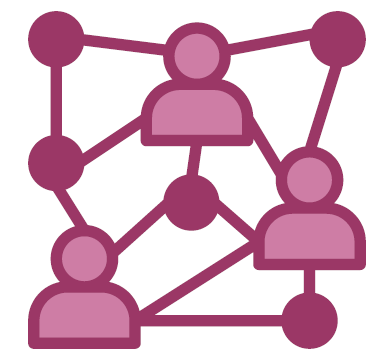How can I better serve my congregation?

Almost 84% of people around the world identify as “being religious”.1 Not only do most people identify with a religion, they also turn to faith to provide guidance to their daily lives. Women in faith-based communities who survive various forms of sexual or gender-based violence like FGM/C may struggle with their personal spirituality, especially when violence happens in the name of faith.2
Survivors of FGM/C report feeling a sense of indifference not only to themselves and their own individual spirituality, but also in the form of exclusion from their religious communities especially when their experience has been linked with their faith.3
As a faith leader, you can better support your congregation by taking important steps to address the issue of FGM/C. You can:
Speak up against FGM/C

Speak up against FGM/C in your community to raise awareness on harms and religious misconceptions around FGM/C.4,* For example, in 2016, in response to increased media attention on FGM/C in the U.S., faith leaders from the All Dulles Muslim Society participated in a community forum to explain how FGM/C has no basis or place in Islam.5
Mobilize your community
Mobilize your community by creating opportunities for community dialogue on FGM/C.4 This can come in many forms such as public discussions led by yourself or other community leaders, art and educational sessions in the community on ending FGM/C, or social media projects started by your congregation to share stories and openly express condemnation of FGM/C.6

Share information and resources

Share information and resources that can help prevent FGM/C and support survivors within your congregation. One way can be to use text messaging and phone lines to provide information to those at-risk of FGM/C in your community.7 Keep your congregation up to date on new policies, laws, and referral systems regarding FGM/C.
Engage in public forums
Engage in public forums both within and outside the community about FGM/C. Try to integrate FGM/C into broader discussions on domestic and gender-based violence.8

Commit to educating yourself, your congregation, and your larger community about:

Sexual & Reproductive Health: Sexual health education can be a valuable aspect of FGM/C prevention. Oftentimes sexual education does not focus on couples’ communication or education, hindering anti-FGM/C efforts.9
FGM/C: Teach about cultural and religious differences of FGM/C and its effects on survivors.* You can discuss how FGM/C is culturally based with no linkage to religion.*,10
.
Offer safe spaces
Offer safe spaces within your congregation where people, including men and survivors, can feel comfortable discussing experiences related to FGM/C.11 For example, peer discussion groups, women or men-only groups, survivor support groups, and/or private faith counseling.12

Connect and work with local organizations

Connect and work with local organizations to address FGM/C. Have services or referrals available, in case they are needed by your parishioners. Here are a few to note below:
[accordion collapsed]
DMV organizations working on FGM/C prevention
Referrals to healthcare services in the DMV
- Unity Healthcare - Parkside Women’s Health Center
- Mamatoto Village Midwifery
- Capital Women’s Care
- Georgetown Hospital
- DC Behavioral Health Access Hotline or 1-888-793-4357
National organizations working on FGM/C prevention
International organizations working on FGM/C prevention
[/accordion]
Learning from other faith leaders
You can reach out and discuss with other faith leaders how to address the conversation around FGM/C and advocate for survivors and women. We encourage you to share this toolkit with other faith leaders in your network, including resources like the PDF linked below:
*Interviews conducted with faith leaders in Fall 2020.

